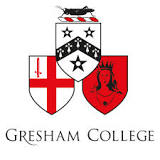Category: Astronomy
400 Years of the Telescope
This lecture coincides with the 400th anniversary of the first use of a telescope to observe the heavens by Galileo Galilei in 1609.
It will chart the development of optical telescopes since then, the subtle ideas that are greatly improving their performance and how they are bringing ever further parts of the universe within our reach.
50 YEARS OF THE LOVELL TELESCOPE
A topical lecture about an icon of British science and technology as it passes its 50th anniversary. The lecture also gives an introduction to the art of radio astronomy and how it enables us to observe parts of the universe that optical telescopes cannot reach.
THE FOURTH ANNUAL BOYLE LECTURE
Delivered by Professor John D Barrow FRS, FRS, Gresham Professor of Astronomy, with response by Professor the Lord Rees, PRS, Master of Trinity College Cambridge, Astronomer Royal, President of the Royal Society and former Gresham Professor of Astronomy
The original Boyle Lectures took place annually between 1692 and 1732. Funded by a bequest in the Will of the Hon Robert Boyle, the lectures featured distinguished preachers who were asked to consider the relationship between the new natural philosophy and the Christian religion. Revived in 2004, the new Boyle lectures address the same challenge today.
COULD WE DESTROY THE UNIVERSE?
It is 70 years since the birth of particle accelerators. This talk shows how they have been used and become ever more powerful. As we step into unknown territory with the new accelerators in the USA and at CERN, some media have suggested that the experiments could destroy the universe. Do we need to be concerned?
The Forces of Nature
Four fundamental forces rule the universe: gravity, the electromagnetic force and then two that act in and around the atomic nucleus, known as strong and weak. The latter pair act over distances smaller than atoms and so are less familiar to our macroscopic senses than are the effects of gravity and magnets. However, they are critical to our existence, keeping the Sun burning and providing the essential warmth for life.
IT'S ABOUT TIME
Time is one of the most mysterious concepts in our Universe. It is easy to describe how we define its passage and how we can make exceedingly accurate clocks but questions as to what determines the arrow of time and whether time travel is possible can tax the most brilliant minds!
Life on Mars?
We know that some 3 to 4 thousand million years ago conditions on Mars could have supported life. We will chart our exploration of the red planet and how we have learnt of its past climate. Could simple life forms have evolved there and, if so, might they still exist beneath the surface?
Neutrinos: Ghost Particles of the Universe
As you read this, millions of neutrinos are passing through you, unseen (and harmless!). Produced in the Sun and stars, they corkscrew through space at hear to the speed of light. They may hold the answer to some of the mysteries of Creation and to the mirror asymmetries of life. CUrrent experiments are looking at the role of neurtinos in the eventual fate of the universe.
PROVING EINSTEIN RIGHT!
A gentle introduction to Einstein's General Theory of Relativity discussing gravitational waves and the curvature of space and how, since 1915, experiments have been undertaken to test its accuracy. Recent observations by Jodrell Bank astronomers have shown that Einstein's theory must be at least 99.95% right!
Unsolved Mysteries of the Universe
There are many things that we do not understand about our Universe. This lecture will discuss some of the most perplexing of these and survey the instruments that are now being built and planned to help us fathom its mysteries.
The Violent Universe
A look at the most violent events that occur in our Universe, from supernovae and hypernovae to the cause of gamma ray bursts and what was the biggest explosion of all - the Big Bang origin of the Universe itself.
Why do we live in three dimensions - or do we?
We are aware of 3D space and the fourth dimension of time. But why is it like this? Why would one or two not have been enough? Why not more? Experiments at CERN will seriously be looking for evidence of a fifth dimension. Science fiction or science fact?
Wonders of the Southern Sky
Some of the most beautiful parts of the heavens are hidden from us here in the United Kingdom. The lecture will take us on a visual journey to the most beautiful and interesting objects of the southern skies including a star that could explode any time, a cluster containing 'singing' stars, the heart of our own galaxy and our nearest galactic neighbours.
